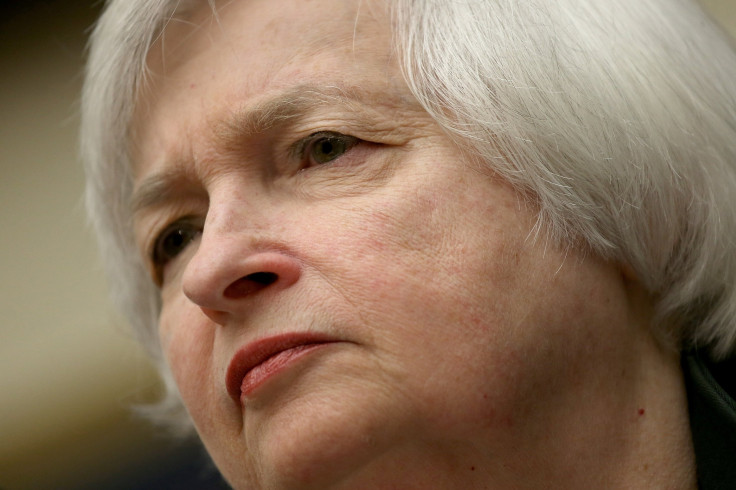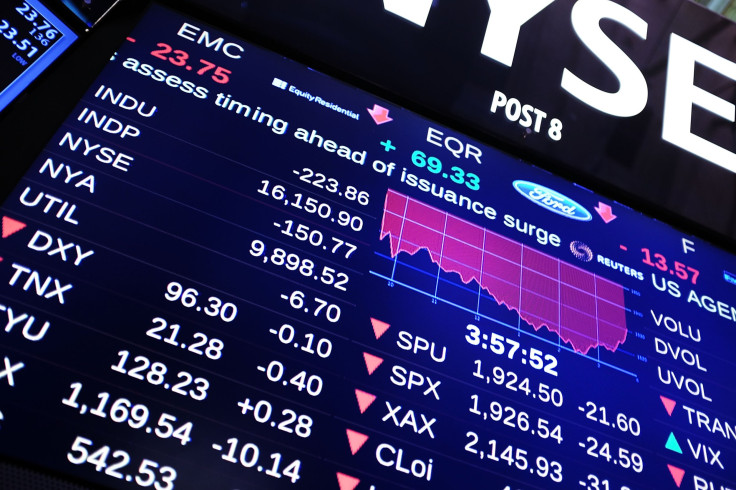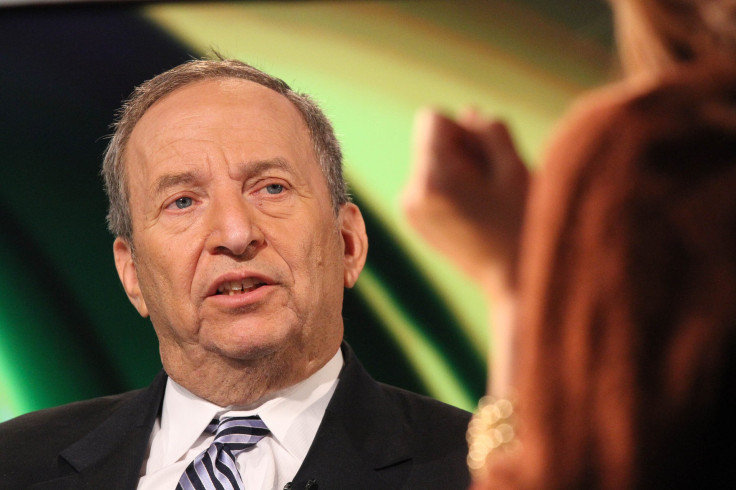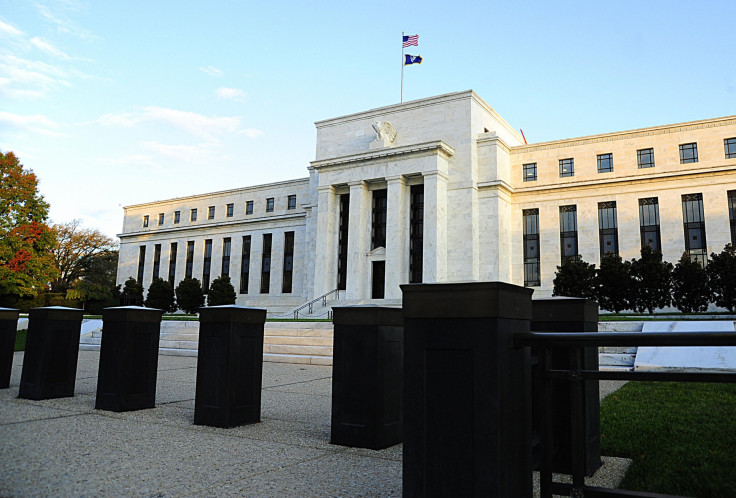Should The Fed Raise Interest Rates? Here Are The Pros And Cons Of A Federal Reserve Rate Hike

This week could mark the end of the era of “cheap money” -- that is, if the U.S. Federal Reserve raises interest rates at its meeting Wednesday and Thursday for the first time in nearly a decade.
The Fed’s decision on whether to hike rates -- potentially its first raise since the end of the global financial crisis -- won’t be easy. A rate increase would affect everything from the interest banks paid to borrow from one another to the rates consumers paid on credit card purchases.
Typically, the central bank tightens monetary policy when frenzied economic expansions are reaching a high point and need cooling down. This, according to many economists, is not such an occasion, what with pressing worries that China’s economic slowdown will ripple across the globe and infect growth in the U.S. Those fears have already shaved 6 percent off S&P 500 stocks in the past month, making the Fed’s verdict this week all the more pressing.

The Fed has a “dual mandate” of stabilizing U.S. inflation and achieving maximum employment.
The U.S. unemployment rate edged down to 5.1 percent in August, its lowest level since April 2008 and below the Federal Open Market Committee’s projections in June that unemployment would ease to 5.2 to 5.3 percent this year, the Labor Department said Sept. 4.
Rate increases are also seen as a lever to control inflation, but prices are rising at a less than 2 percent annual pace -- lower than the Fed’s target.
“This is the eye before the storm,” Terry Sandven, chief equity strategist at U.S. Bank Wealth Management, said. “The near-term fate of the stock market hinges on the outlook of the Fed this week.”
Economists are almost evenly split about the prospects of a U.S. rate hike this week, with the Bloomberg consensus poll showing 39 economists looking for no change in the federal funds rate, while 41 economists are looking for a hike of 25 basis points, or a quarter of a percent.
However, investors are forecasting things differently. The fed funds futures market, where traders place bets on the outlook for the central bank’s benchmark interest rate, is pricing in a roughly 25 percent chance of a rate hike Thursday.
Federal Reserve Board Chairwoman Janet Yellen this week will preside over a meeting that will no doubt feature heated debate over whether now is the right time for a rate hike -- an issue that also divides outside economists and market watchers. Here are the arguments against and for an immediate raising of rates:
Hold Off!
Former U.S. Treasury Secretary Larry Summers has publicly expressed opposition to a rate increase. Just last week, the Charles W. Eliot university professor at Harvard, argued in an op-ed in the Washington Post that the case against a rate increase has become "somewhat more compelling" than it looked two weeks ago.
Summers also made an appearance on CNBC Thursday contending that the central bank could not guarantee that it would lift interest rates gradually. With inflation well below target, and market volatility high, a rate hike would create uncertainty about the future, Summers said. "That doesn't seem like a prudent risk to take," he told CNBC's"Squawk Box."
In late August, Summers argued in another op-ed in the Financial Times last month that it would be a mistake for the Fed to raise interest rates this year. He said such a move would threaten the central bank's major objectives: price stability, full employment and financial stability.
"At this moment of fragility, raising rates risks tipping some part of the financial system into crisis, with unpredictable and dangerous results," Summers wrote.

Many economists contend that it is unlikely to that the Fed would raise rates now, knowing that its first rate increase in some time might get an outsize reaction. “I would argue for waiting, because the risks are far much greater if they move too soon rather than move too late,” David Wessel, director of the Hutchins Center on Fiscal & Monetary Policy at the Brookings Institution, said.
Wessel said he doesn’t anticipate an outbreak of inflation between now and December, and if financial markets are worried about stability and that low rates have been creating a so-called asset bubble, recent market volatility already has taken some air out of that bubble. “The case for waiting is strong, and that’s what I expect them to do,” he said.
Experts who favor a cautious approach warn that the Fed must also pay particular attention to the dollar. "Higher interest rates could drive the already potent U.S. dollar higher against major currencies, which hurts U.S. trade,” Sal Guatieri, senior economist at BMO Capital Markets, said. “Anything that drives the U.S. dollar higher and equities lower would pose a risk of a recession in the U.S.”
Do It Now!
Economists and other experts who favor a rate hike argue that inflation is no longer a good gauge for the Fed to use as a basis for its interest rate decisions. They point out that inflation has been tame since the 1990s. On those grounds, Tim Yeager, an economist and assistant vice president at the Federal Reserve Bank of St. Louis from 1998 to 2005, said the Fed should lift rates now.
“We have learned in the past that the economy can grow quickly without inflation taking off here in the United States, and I think we’re seeing that again now,” Yeager, who is now an associate professor of finance at the University of Arkansas, said.
What the Fed needs to look at is credit growth, he said. “It’s clear that in the housing boom, the Federal Reserve was focusing on inflation and unemployment, and they kept interest rates too low for too long,” Yeager added.

Timothy Kane, an economist and research fellow at the Hoover Institution, agrees that the central bank should have no problem raising interest rates as soon as possible. “I’m worried that we’re out of balance and that we’re so overstimulating when the U.S. economy is strengthening,” he said. “I’m afraid if they don’t hike rates now, they’ll find themselves in a bind of overheating territory for the labor market.”
Andrew Huszar, a senior fellow at Rutgers Business School and a former official at the Federal Reserve Bank of New York, also said the Fed should start raising rates now. He argues that the Fed’s policies of the past half decade, including low rates and its massive bond-buying program, dubbed “quantitative easing,” have largely benefited Wall Street. The benefits from the Fed’s easy-money policies have largely gone only to the wealthiest Americans, Huszar said.
“This is way overdue,” he said. “It hasn’t really trickled down to Main Street in the way the Fed has talked about.”
© Copyright IBTimes 2024. All rights reserved.












